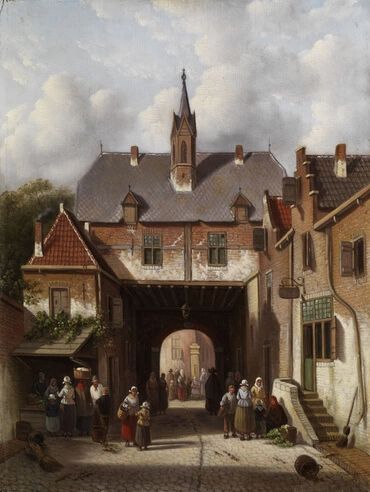1
Las palabras de Nehemías, hijo de Hacalías. Y acaeció en el mes de Quisleu, en el año veinte, estando yo en Susa, capital del reino,
2
que vino Hanani, uno de mis hermanos, él y ciertos varones de Judá, y les pregunté por los judíos que habían escapado, que habían quedado de la cautividad, y por Jerusalén.
3
Y me dijeron: El remanente, los que quedaron de la cautividad allí en la provincia, están en gran mal y afrenta, y el muro de Jerusalén derribado, y sus puertas quemadas a fuego.
4
Y fue que, cuando yo oí estas palabras, me senté y lloré, y me enluté por algunos días, y ayuné y oré delante del Dios de los cielos.
5
Y dije: Te ruego, oh SEÑOR, Dios de los cielos, fuerte, grande, y terrible, que guardas el pacto y la misericordia a los que te aman y guardan tus mandamientos;
6
esté ahora atento tu oído, y tus ojos abiertos, para oír la oración de tu siervo, que yo hago ahora delante de ti día y noche, por los hijos de Israel tus siervos; y confieso los pecados de los hijos de Israel que hemos cometido contra ti; sí , yo y la casa de mi padre hemos pecado.
7
En extremo nos hemos corrompido contra ti, y no hemos guardado los mandamientos, y estatutos y juicios, que mandaste a Moisés tu siervo.
8
Acuérdate ahora de la palabra que ordenaste a Moisés tu siervo, diciendo: Si vosotros prevaricareis, yo os esparciré por los pueblos;
9
mas si os volviereis a mí, y guardareis mis mandamientos, y los pusiereis por obra. Si fuere vuestro lanzamiento hasta el cabo de los cielos, de allí los juntaré; y los traeré al lugar que escogí para hacer habitar allí mi nombre.
10
Ellos, pues, son tus siervos y tu pueblo, los cuales redimiste con tu gran fortaleza, y con tu mano fuerte.
11
Te ruego, oh SEÑOR, esté ahora atento tu oído a la oración de tu siervo, y a la oración de tus siervos, quienes desean temer tu nombre; y ahora concede hoy buen suceso a tu siervo, y dale gracia delante de aquel varón. Porque yo era maestresala del rey.







